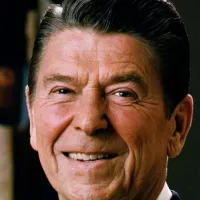The South China Sea Arbitration, initiated by the Philippines against China, addressed disputes under UNCLOS regarding the South China Sea, particularly the nine-dash line. The Permanent Court of Arbitration (PCA) served as the registry. The tribunal ruled that China's nine-dash line claim had no legal basis under UNCLOS and that China had violated the Philippines' sovereign rights within its exclusive economic zone. China rejected the tribunal's jurisdiction and refused to participate in the proceedings, thus dismissing the ruling. Despite the ruling being legally binding, its enforcement remains a complex issue.
5 hours ago : Tensions Rise: China's Actions in South China Sea Spark Dispute with Philippines
China's alleged seizure of a sandbank in the South China Sea escalates tensions. The Philippines denies China's claim of dealing with their mission to the disputed reef, leading to further conflict.
August 2015: India calls for peaceful resolution
In August 2015, V.K. Singh, a junior Minister of State of India, stated that territorial disputes should be resolved through peaceful means using UNCLOS mechanisms, referencing the India-Bangladesh resolution and advocating adherence to the Declaration of the Conduct of Parties in the South China Sea.
2015: South Korea calls for peaceful resolution in East Asia Summit
During the 2015 East Asia Summit, South Korea's President Park Geun-hye emphasized that involved parties should adhere to the Declaration on the Conduct of Parties in the South China Sea and resolve disputes according to international law, stressing the importance of peaceful resolution and freedom of navigation and flight. It was also reported that South Korea turned down a request from the United States to express its position on the arbitration case before the ruling.
April 2016: Russia, India and China agree to maintain legal order of seas
In April 2016, Foreign Minister Sushma Swaraj stated in a communique that Russia, India and China agreed to maintain legal order of seas based on international law, including the UNCLOS, and all related disputes should be addressed through negotiations and agreements between the parties concerned.
May 2016: China claims support from over 40 countries
In May 2016, Chinese Foreign Ministry spokesperson Hua Chunying announced that more than 40 countries had voiced their support for China's position on the South China Sea. Later, on May 19, 2016, Foreign Ministry spokesperson Hong Lei identified Brunei, Mozambique, and Slovenia as specific supporters of China's stance for resolving the South China Sea issues through negotiations.
June 2016: Duterte seeks non-confrontational approach
After taking office on June 30 2016, Philippines President Rodrigo Duterte expressed hope that a non-confrontational approach to China could eventually pave the way for joint exploration of the South China Sea.
July 2016: China assures ASEAN it won't reclaim land on Scarborough Shoal
At the July 24, 2016 China-ASEAN Foreign Ministers summit, China assured ASEAN that it would not conduct land reclamation on the Scarborough Shoal. The joint statement at the conclusion of the summit emphasized the implementation of the Declaration on the Conduct of Parties in the South China Sea and urged restraint on inhabiting currently unoccupied islands, reefs, shoals, cays, and other features, applicable to both China and the Philippines.
July 2016: Conflicting reports on countries supporting China
In July 2016, reports surfaced that over 70 countries had advocated for resolving the South China Sea dispute through negotiations, rather than arbitration. However, American media and think tanks, including the Center for Strategic and International Studies (CSIS) via its Asia Maritime Transparency Initiative (AMTI), cast doubt on this figure, estimating the number at ten.
July 2016: Chinese internet users criticize arbitration decision
In July 2016, the arbitration decision spurred significant criticism from Chinese internet users, with over five million microblogs directly addressing the decision from July 1 to July 20, 2016. The Weibo hashtag "China: not even a bit can be left behind" was re-blogged over 1.5 million times the evening it debuted, demonstrating strong public sentiment. Numerous Chinese celebrities expressed support online for China's position, prompting a broader public response.
August 2016: Philippines sends Ramos to Hong Kong to mitigate tensions
On August 8, 2016, the Philippines dispatched former president Fidel V. Ramos to Hong Kong in an effort to mitigate tensions following the arbitration result. Additionally, Duterte and Chinese president Xi Jinping established the biannual Bilateral Consultation Mechanism on the South China Sea, intended for managing disputes and strengthening relations peacefully.
2016: Graham Allison comments on UN Security Council
In 2016, Academic Graham Allison observed that no permanent member of the UN Security Council has ever accepted an international court's ruling when it infringed upon their sovereignty or national security interests, indicating China's rejection of the South China Sea ruling aligned with historical precedent among great powers.
2016: Hackers infiltrated Philippines' Department of Justice
In 2016, hackers infiltrated and extracted confidential information from the Philippines' Department of Justice and the international legal firm representing the Philippines at the Hague. The firm suspected the hack was backed by the Chinese government.
March 2017: Duterte orders structures built on Benham Rise
In March 2017, after spotting a Chinese vessel near the Benham Rise, Duterte instructed the Philippine Navy to construct structures on the undersea feature to assert sovereign rights. In May, he officially named it Philippine Rise. Additionally, he ordered the fortification of Philippine-controlled islands in the South China Sea in response to accusations of being overly lenient towards China.
November 2018: Philippines and China sign 29 agreements
In November 2018, the Philippines and China signed 29 agreements, including a memorandum of understanding on joint oil-and-gas developments.
September 2019: Xi offers Philippines controlling stake in gas deal
In September 2019, Duterte stated that Xi Jinping had offered the Philippines a controlling stake in a gas deal in the Reed Bank, contingent on the Philippines disregarding the Hague ruling.
June 2020: Duterte's hopes for Chinese investments unfulfilled
By June 2020, RAND Corporation analyst Derek Grossman observed that Duterte's hopes for increased Chinese investments and loans had not been realized.
September 2020: Duterte affirms arbitration ruling at UN
In September 2020, during a speech at the UN, Duterte affirmed the arbitration ruling, stating that "the award is now part of international law, beyond compromise and beyond the reach of passing governments to dilute, diminish, or abandon."
2022: Worsening Philippine-China relations
In 2022, the election of Philippine president Bongbong Marcos marked the beginning of deteriorating Philippine-China relations and frequent skirmishes in the South China Sea.
Mentioned in this timeline
The United States of America is a federal republic of...
India officially the Republic of India is a South Asian...
Hong Kong is a special administrative region of China with...
China officially the People's Republic of China PRC is located...
Korea is a peninsular region in East Asia comprised of...
The Philippines is a Southeast Asian archipelagic nation located in...
Trending

7 minutes ago Hakan Çalhano?lu shines as PSG gains advantage; Barcelona vs Inter match approaches.

8 minutes ago Martínez downplays Messi links as Yamal aims to lead Barcelona against Inter.

8 minutes ago Sabalenka Advances to Madrid Quarterfinals, Defeating Stearns; Medvedev and Ruud Progress

1 hour ago Jaire Alexander and Packers Discuss Reconciliation and Possible Contract Restructure.

1 hour ago Serah Williams Transfers to UConn, Boosting Defending Champions' Roster for Final Season

1 hour ago Trump Administration's PFAS Limits: EPA Action and Lingering Concerns Over Forever Chemicals
Popular

Pope Francis is the current head of the Catholic Church...

Ronald Reagan the th U S President - was a...

Cristiano Ronaldo often nicknamed CR is a highly decorated Portuguese...

Michael Jordan also known as MJ is an American businessman...
The Real ID Act of is a US federal law...

LeBron James nicknamed King James is a professional basketball player...